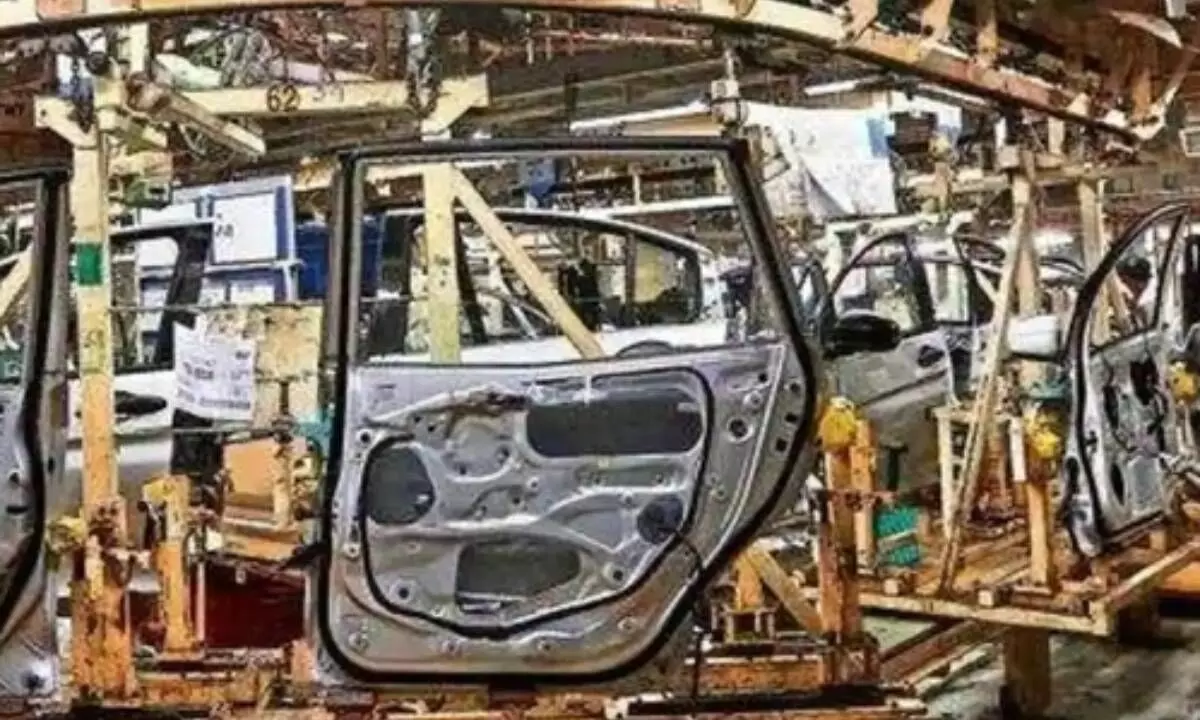Indian automotive & ancillary sector to reach Rs 15 lakh crore, create over 19 million jobs
Buoyed by the government policies, the Indian automotive and ancillary sector is likely to double its size to Rs 15 lakh crore, providing employment to over 19 million people by the end of 2023, a report said on Tuesday, adding that Indian corporates are navigating global challenges with superior risk handling
image for illustrative purpose

Mumbai, June 25: Buoyed by the government policies, the Indian automotive and ancillary sector is likely to double its size to Rs 15 lakh crore, providing employment to over 19 million people by the end of 2023, a report said on Tuesday, adding that Indian corporates are navigating global challenges with superior risk handling.
The automotive and ancillary sector is projected to contribute 7.1 per cent to the national GDP, according to the report by ICICI Lombard in collaboration with Frost and Sullivan.
Two-wheelers currently dominate the sector with 77 per cent market share, followed by passenger cars at 18 per cent.
India currently ranks second globally in two-wheelers, seventh in commercial vehicles and sixth in passenger vehicles.
Government initiatives such as ‘Make in India,’ continued investments in infrastructure, and the promotion of sustainable energy management have played a pivotal role in bolstering sector resilience.
Meanwhile, despite facing global headwinds and increased risk exposure in certain sectors, Indian enterprises have demonstrated resilience and strategic advancements, leading to improved risk management scores, according to the report.
The Corporate India Risk Index (CIRI) 2023 shows an improvement in the risk index score from 63 in 2022 to 64 in 2023.
“The improved score is a testament to the efficient risk management practices adopted by Indian corporates in the face of global headwinds and challenges,” said Sandeep Goradia, Chief - Corporate Solutions Group at ICICI Lombard.
The manufacturing, metals and mining, and new-age sectors displayed notable advancements in their risk index scores.
“The steady improvement in risk index score for the country as a whole, combined with the fact that there are no sectors below the optimal risk index category, indicates a very positive outlook for Indian corporate,” said Aroop Zuthsi, Global President and Managing Partner at Frost & Sullivan.
The ongoing digital transformation and AI integration across sectors have further enhanced operational efficiencies and risk management practices, the report mentioned.

